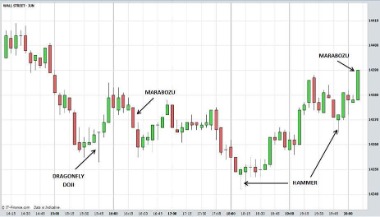Content

Some investors may also have issues with I Bonds’ lack of liquidity. Rather than making regular interest payments, I Bonds only pay out when they are sold—and that’s only possible at least 12 months after purchase. Otherwise, the bonds pay out when they reach maturity 30 years after issuance. When it comes to hedging against inflation or building your investment portfolio in general, there is no fixed strategy that will work for everyone. Having said that, diversifying your portfolio is one of the most common ways to weather the storm. Inflation can impact investment decisions by making it difficult to predict future prices.
- SmartAsset Advisors, LLC (“SmartAsset”), a wholly owned subsidiary of Financial Insight Technology, is registered with the U.S.
- TIPS have a fixed rate of interest, but adjust the principal value of the bond based on inflation, as determined by the Consumer Price Index (CPI).
- These types of annuities may cost more or offer lower initial payments, but provide a hedge against inflation.
- Additionally, over very long time periods, a 60/40 portfolio may significantly underperform an all-equity portfolio because of the effects of compounding interest.
- Real estate has long been considered one of the best hedges against inflation because you can pay less for your home over time compared to what you may pay in rising rent.
These liquid issues will pay a higher yield than most types of bonds and may not decline in price as much as bonds when inflation appears. Inflation is the gradual increase in the prices of goods and services throughout the economy. It is measured by calculating the percentage change in a price index over a period of time, typically over the prior 12 months.
Treasury bonds typically provide a set payment for the bond’s duration, making them vulnerable to increases in inflation on their broadside. However, a floating rate bond, whose payoff increases in reaction to increases in interest rates brought on by rising inflation, is one strategy to counteract that effect. Central banks often adjust benchmark interest rates in response to changes in inflation.
It is fair to say that stocks are a hedge against inflation because companies can pass on inflation in their selling prices. However, in the short to medium term, stock prices are all over the place. The stock market rose 6% per year during the stagflation of the 1970s, lagging inflation by a wide margin. Anyone who believes that the current inflationary wave will also go along with chaos can indeed buy gold as protection. Those who don’t believe in chaos better think twice before buying gold, especially when US bond yields – US Treasury bonds remain the world’s safest asset – are rising strongly. Inflation is the term used to describe the steady rise of prices for goods and services that affects all areas of the economy.
Open a High-Yield Savings Account
However, at the end of the year, when the investor plans to sell the investment, the inflation rate accelerates to 6%. It means that the investor will suffer a loss of 1%, which is a loss in their buying power. “Stocks can be good as a long-term inflation hedge but can suffer in the short term https://g-markets.net/helpful-articles/how-much-can-you-make-with-100-on-forex/ if inflation spikes,” Arnott says. Consider market-tracking index funds that have performed well over the long term, even though they have dropped in recent months. Companies with low capital needs and the ability to raise prices are often the best positioned during inflationary times.

Typically, this strategy is utilized to offset potential losses from a current position without having to sell the security. It is an advanced strategy typically used by institutional investors, though individuals can benefit from a hedging strategy when leveraging the right tools and analysis. Oftentimes, investors will short stocks, short ETFs, or embrace value investing strategies in order to hedge against the potential decline of certain long positions in their portfolios. So, keeping the principles of hedging in mind, let’s explore what is a hedge against inflation and how investors manage their portfolios during inflationary times. Inflation hedging gives investors a way to protect against the loss of value in foreign currency, but it isn’t the best investment strategy.
S&P Futures
For instance, if you have €10,000 in a traditional savings account that offers 0.5% interest, your balance will only grow by €50 after one year. However, if you have the same amount in a high-yield savings account that offers 2% interest, your balance will grow by €200 after one year. In addition, the supply of Bitcoin is limited to 21 million coins, and there will never be more than that. This makes Bitcoin a scarce asset, similar to gold, which tends to do well in times of inflation. Existing homeowners may actually welcome inflation as it translates to more valuable equity.
While we strive to provide a wide range offers, Bankrate does not include information about every financial or credit product or service. Borrowers of leveraged loans can shutter their business or reach a point where they are unable to pay their debts. Leveraged loans may not be as easily purchased or sold as publicly traded securities. And finally, leveraged loans generally have fewer restrictions in place to protect the lender than traditional loans. This could leave a fund exposed to greater losses if the borrower is unable to pay back the loan. There are better assets to invest in when aiming to protect yourself against inflation.

The U.S. government regularly adjusts the principal value of TIPS based on inflation determined by changes in the Consumer Price Index. When inflation rises, the principal value of your TIPS will increase at a greater rate, meaning more interest will accrue and you’ll receive more money when redeeming the bonds. When the Fed raises rates to control inflation, it gets harder for businesses to borrow money. However, some sectors such as financial services may benefit from rising interest rates.
Alternatively, the benefits of owning actual real estate can be captured by adding Real Estate Investment Trust (REIT) holdings to a portfolio. REITs typically operate conglomerates of real estate and are investor-owned. Those investors receive distributions on the REIT’s rental income, interest, and property sales. There are hundreds of REIT equities, ETFs, and Mutual Funds in the YCharts database, in addition to general real estate sector securities such as the SPDR Select Real Estate Sector ETF (XLRE). Like precious metals, real estate is a tangible asset that tends to hold value during prevalent inflation.
Asset Classes for Protection Against Inflation
Keeping these assets on your watch list, and acquiring them when inflation hits, can help your portfolio thrive despite the economic climate. Some of your assets may be protected against inflation through inflation hedges. Join the Investors Club here at Willowdale Equity to get access to exclusive value-add multifamily real estate investment opportunities across the southeastern United States. You can safeguard your funds from inflation by investing in stocks, but you must do your homework and choose the right companies to invest in.
- Learn more about assets that are used as inflation hedges and how they can fit in your portfolio.
- Hedging is the practice of investing in assets for the purpose of reducing or eliminating particular sources of risk in a portfolio.
- And then you inevitably end up with a residential property in non-speculative markets like Belgium, provided you follow a number of sound principles.
While the recent political climate has created some volatility in foreign currency markets, it’s not a problem for investors who buy a foreign currency fund. These funds allow investors to hedge against inflation and get exposure to foreign markets. One option is to purchase assets whose value tends to be tied to inflation. Another is to invest in securities specifically designed to hedge against inflation. For example, some bonds will pay an interest rate partially based on the rate of inflation.
Bitcoin USD
As prices rise, so do property values and rents, increasing the amount of rental income earned along with the book value of property. Inflation hedging is a way to protect against the potential loss of value in international currencies. To hedge against inflation, investors can choose from many different investment options.
After all, banks and lenders stand to gain on interest they charge for loans. Consider exposure to such sectors, either by investing in specific stocks or sector specific funds or ETFs. They adjust the value of the principle according to the changes in the CPI. Although TIPS may not yield the highest returns, they are designed to increase in value as the rate of inflation increases, and may sometimes outperform treasuries if inflation reappears.

For people who own their own homes, real estate helps to hedge against increasing rents. Hedging against inflation means taking steps to protect the value of an investment from the effects of inflation. There are a number of apps now that make it easy for everyday investors to invest in crypto, including traditional financial service providers such as Cash App, PayPal, Robinhood and SoFi. All investing is subject to risk, including the possible loss of the money you invest. If you can refinance, try changing your loan or mortgage to a fixed rate rather than a variable rate. So while inflation impacts all investors, it’s especially tough on income-oriented investors.
If you’re not ready to buy actual property, you can still invest in real estate through a real estate investment trust (REIT). These are publicly traded portfolios of properties; although technically securities, they are influenced by real estate trends. Gold has traditionally been a safe-haven asset for investors when inflation revs up or interest rates are very low. Gold tends to fare well when real interest rates – that is, the reported rate of interest minus the inflation rate – go into negative territory.
Is Rental Property a Good Investment in a Recession?
High inflation can also create buying opportunities whose long-term prospects contrast with price drops that come from short-term market jitters. While I Bonds are a safe hedge against inflation, they aren’t a panacea. This purchase constraint is particularly restricting for larger investors.
Before bringing things to a close, we want to provide some additional tips that investors should be aware of before they start hedging against inflation. Another tool that investors have to hedge against inflation in the stock market is to buy real estate ETFs. When inflation is rising, real estate tends to perform well, as there is an intrinsic value to these assets through the value of the properties. Another reason that real estate isn’t always the perfect hedge is that the Fed typically responds to rising inflation by increasing interest rates. If you wait too long during the inflation cycle, you could end up paying significantly more in interest over the course of your mortgage. Inflation is the rise of prices for things purchased within an economy that leads to a decline in purchasing power over time.
An example of a REIT with broad exposure to real estate and a low expense ratio is the Vanguard Real Estate ETF (VNQ). Even as inflation rises, investors have a variety of ways they can hedge their portfolios and protect the value of their investments. Whether it’s at the grocery store or out on the road, consumer demand and healthy economic activity (or sometimes money printing and resource scarcity) ignite inflation and send prices higher. Though consumers and investors alike have valid reasons for concern, there are many ways to protect long-term investments against the threats of inflation.
